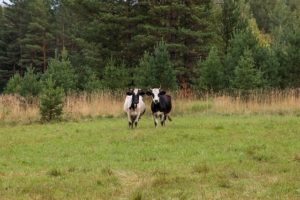
It was last Friday, June 19th. I had just woke up. I quickly scanned my Facebook page. It was then that a headline hit me head-on, knocked me out with a thousand words; the unspeakable evils that are too often invisible. I was stunned to read: “Animal rights activist Regan Russell killed by truck during a protest outside a hog slaughterhouse” (Huffpost, 2020). That morning, Regan died in front of the Fearmans slaughterhouse in Burlington, Ontario while giving water to thirsty and bruised pigs. I was still in my bed, but a social injustice had just arisen. We were risen. I was risen. For a long time, I read and peered at all the articles about it. I didn’t know her, admittedly, but it seems different to me. Regan Russell (1955-2020) was a strong and distinguished long-time activist; 43 years of commitment to animals, almost 11 arrests, solidarity, orderly compassion and passionate dedication. She was also a daughter who could not wish “Happy Father’s Day” to her father two days later. This ardent fire of justice and moral consideration she had not only for animals – the forgotten ones of our societies – but also for many social causes worthy of the name:
Regan was a kind, elegant, strong and courageous person. She had always done advocacy work with kindness in her heart. She fought for animal equality and racial justice. Last week she participated in a Black Lives Matter demonstration in Hamilton and she attended vigils every Sunday.
In 43 years of activism, she has never given up; she has never given up on anyone. The young pigs, with their crystalline, blue eyes, would get soaked in her tender gaze, often for the first and last time. Her compassion, like a heat wave, permeated everything, even the iron bars. 10,000 beings. 10,000 pigs. 10,000 people…murdered in just one day at the Fearmans slaughterhouse. She had and would never stop. The only possible end to her regular engagement, in the vigils, week after week, month after month, year after year coincided with her own end.

She died fighting for what she believed in. Whatever it cost, she would pay...Sometimes it’s money. Sometimes, it’s this.
Mark Powell, Life partner of Regan Russell
Was it a simple accident? Nothing is absolutely certain, the investigation is ongoing. But what we do know is that this violent death was not anecdotal or removed from any social and political context. Yet too often her story was decontextualized, depoliticized or simply trivialized by many mainstream media. I found, that most of the articles about her appeared in the miscellaneous section. Her claims were often ignored. She and many other activists were actively opposing Bill 156 “ag gag”. Bill 156 attempts to restrict the peaceful protest rights of all those engaged in vigils outside the province’s slaughterhouses by subjecting them to fines of up to $15,000. Bill 156 will also make it illegal for industry employees, activists and whistleblowers to expose abuses. This new law, similar to the farm gagging laws that have been declared unconstitutional in several U.S. courts, is again being criticized by many Canadian legal experts as a direct attack on freedom of expression (Animal Justice). Bill 156 thus makes peaceful assemblies, certain forms of street activism and investigative journalism illegal, a clear democratic failure. Today, in honour of Regan Russell, the Save Movement is urging the Ontario government to repeal Bill 156. To strip it of its legal invisibility of animal cruelty and allow for the reporting of violence and the fair representation of the most marginalized. There are many who believe that eating animals and by-products is permissible. We do not see the violence. We do not hear it. We do not want to know it exists. Yet it exists. Regan, through her numerous weekly demonstrations, informed the conscious consumer of what goes on behind the closed doors of slaughterhouses; our mentally closed doors:
Virtually all the atrocities were possible because people turned away from the reality they found too painful to face. And virtually every revolution, every social transformation has been made possible because one group of people chose to testify, and encouraged others to testify as well.
Melanie Joy on "Bearing Witness", Toronto Pig Save
Article by:



